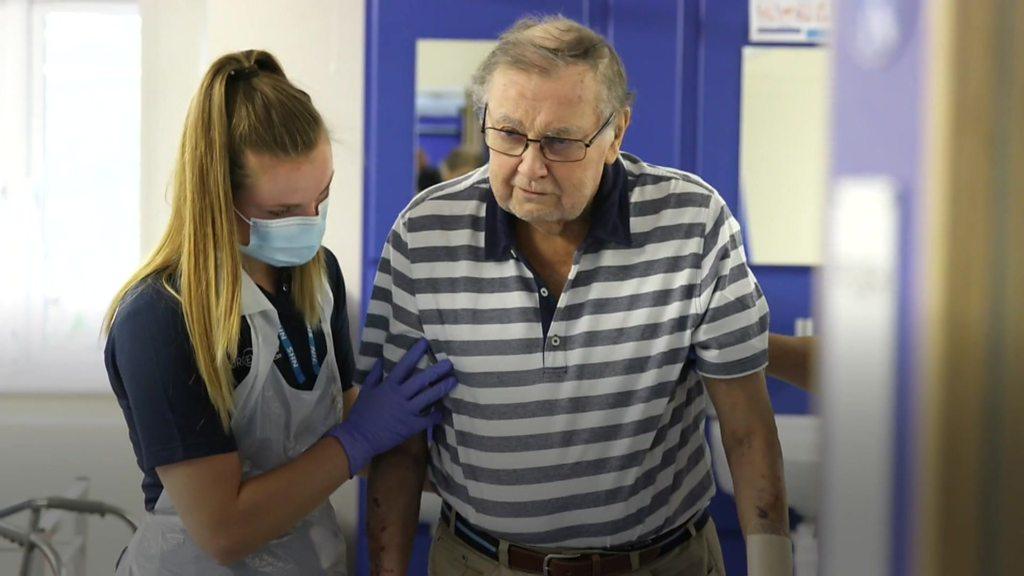Coronavirus: 'Long Covid' patients need treatment programme, doctors say
- Published
Keen cyclists Meredith and Elly, who was training for a marathon, say they're still suffering from Covid-19 symptoms months after getting it
Greater NHS support is needed for people chronically ill for months with Covid-19 symptoms, experts have told BBC Radio 4's File on 4.
The Royal College of GPs is calling for a national network of "post-Covid" clinics to help such people.
But less than 12% of 86 NHS care commissioning groups asked by the BBC said they were running such services.
NHS England said it was "rapidly expanding new and strengthened rehab centres".
Tim Spector, professor of genetic epidemiology at King's College London and leader of the Covid Symptom Study app, said around 300,000 people in the UK have reported symptoms lasting for more than a month - so called "long Covid".
He added that data from the app showed around 60,000 people have been ill for more than three months.
However, many of these people may not have been tested for Covid.
'I just want my life back'
The government moved away from community testing on 12 March, instead only testing those admitted to hospital.
That meant people who recovered from suspected coronavirus at home were unable to access tests.
Elly MacDonald, 37, from Surbiton, was training for the London Marathon when she first developed what she believes were Covid symptoms on 21 March.
More than five months on, she still suffers from breathlessness and extreme fatigue, but has not received a positive test result - because community testing was re-introduced too late for it to detect her illness.
She changed her GP practice after initially feeling she was not being helped,
Elly said: "Just knowing that I actually have people who are taking me seriously - that's been very important for my recovery. I just want my life back."
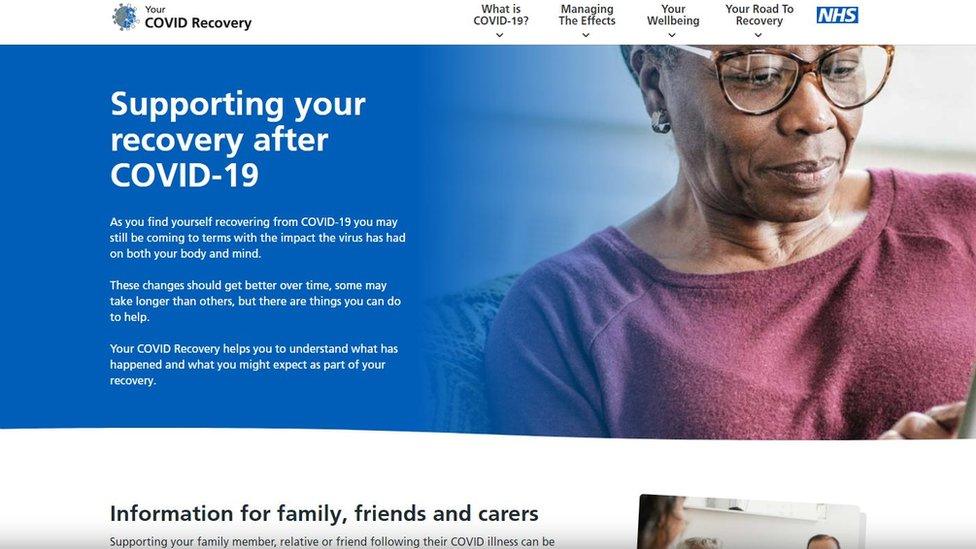
Your Covid Recovery has been set up to support anyone who has had Covid - including those who recovered at home
Paul Garner, a professor at the Liverpool School of Tropical Medicine, has had long Covid since 19 March, and feels some patients are not being believed by healthcare professionals.
"I think the proof is in the symptoms and the stage that we're at in the epidemic," he said.
"We need sensible guidelines that really help people. The government is simply not doing enough with the existing medical expertise. It needs to be commandeered and brought together to work together."
File on 4 asked all 212 Clinical Commissioning Groups (CCGs) and health boards across the UK whether they had set up post-Covid clinics for patients who were not admitted to hospital with the virus - but did not necessarily receive a positive test result.
Of the 86 that responded, 10 said they were already running such facilities. A further 16 said they were planning or redesigning services.
Many patients will be seen by their GP, or existing services.
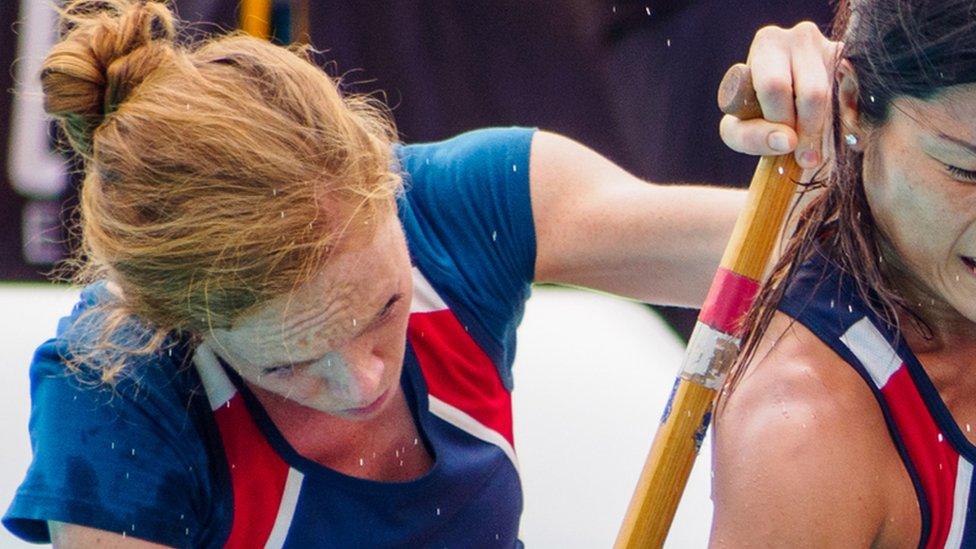
Elly MacDonald (L), a keen rower and rock climber, has had long Covid since March 21
Martin Marshall, GP and chair of the Royal College of GPs, said: "Without doubt, we know that there's going to be a growing number of people who have significant and worrying symptoms of long Covid.
"A small proportion, but in total a large number, will require specialist advice.
"So we really do need to see a growing number of post-Covid clinics being established."
NHS England's new Your Covid Recovery , externalwebsite offers personalised support for all patients recovering from Covid.
Lynne Turner Stokes, professor of rehabilitation medicine at King's College London, said it had some "good resources" but that "we have to do much more".
She said: "For people who have never been to hospital, nobody's looked properly at their lungs, their hearts and so on.
"It will be very useful if we had more one stop (face to face) services."
Person-centred rehab
The UK government and NHS England say there will be new and strengthened rehab centres and community services in every part of the country.
In Wales, community and specialist rehabilitation programmes are likely to be the forum for offering Covid care.
The Department of Health in Northern Ireland says it is assessing the needs of Covid patients who have left hospital to highlight future work, while Scotland is planning to provide "high quality person-centred rehabilitation in different settings".
File on 4's Covid-19: The Long Road to Recovery is on BBC Radio 4 on Tuesday 8 September at 20:00 and available afterwards on BBC Sounds.
- Published29 May 2020
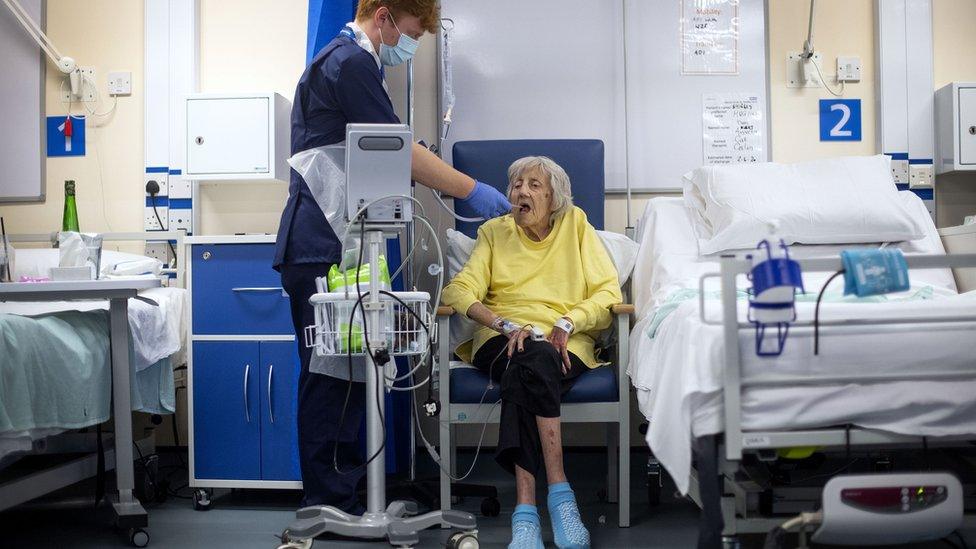
- Published23 April 2020
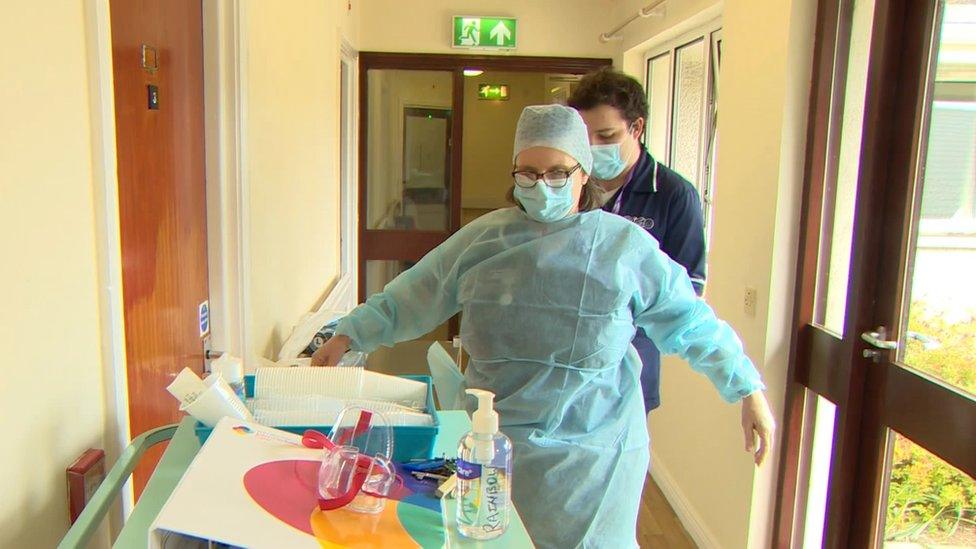
- Published11 July 2020
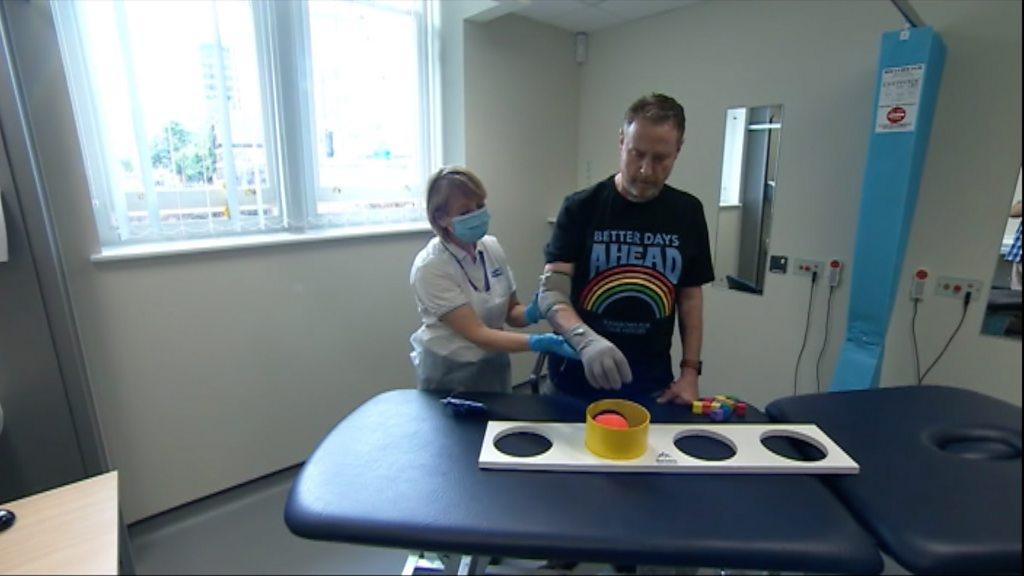
- Published4 June 2020
